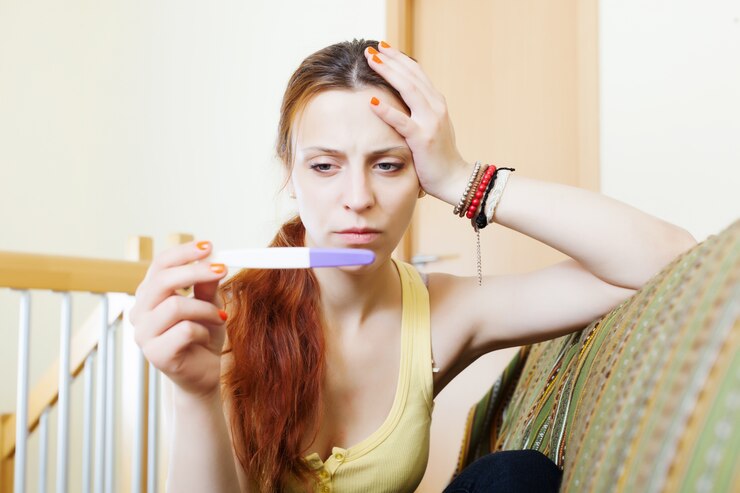Proven Female Infertility Causes, Risks and Treatments

Table of Contents
Understanding the Factors Affecting Female Fertility

Female fertility is a complex and delicate process that can be influenced by a variety of factors. Understanding these factors is crucial for couples who are trying to conceive or are facing challenges in getting pregnant. One of the key factors affecting female fertility is hormonal imbalances. The delicate balance of hormones, such as estrogen and progesterone, plays a vital role in regulating the menstrual cycle and ensuring optimal conditions for conception.
Hormonal imbalances can disrupt this delicate balance and lead to irregular or absent ovulation, making it difficult for women to conceive. Conditions such as polycystic ovary syndrome (PCOS) and thyroid disorders are known to cause hormonal imbalances and can significantly impact fertility. Additionally, certain medications, stress, and lifestyle factors can also disrupt hormonal balance in the body. Therefore, it is important for women and couples to be aware of the impact of hormonal imbalances on fertility and seek medical help if necessary. Understanding the underlying hormonal imbalances can guide the appropriate treatment options and increase the chances of successful conception.
Common Conditions That Can Lead to Female Infertility

One common condition that can lead to female infertility is polycystic ovary syndrome (PCOS). PCOS is a hormonal disorder that affects the ovaries, causing them to enlarge and develop small cysts. This condition can disrupt the normal ovulation process, making it difficult for women to conceive. The exact cause of PCOS is still unknown, but it is believed to be related to insulin resistance and high levels of androgens, such as testosterone. Fortunately, there are various treatment options available, such as lifestyle changes, medications, and assisted reproductive technologies, that can help manage PCOS and improve fertility outcomes.
Another condition that can contribute to female infertility is endometriosis. Endometriosis occurs when the tissue that lines the uterus, called the endometrium, grows outside of the uterus, typically on the ovaries, fallopian tubes, or the tissue lining the pelvis. This abnormal growth can lead to inflammation, scarring, and the formation of adhesions, which can interfere with the normal functioning of the reproductive organs. Women with endometriosis often experience menstrual irregularities, pelvic pain, and difficulties getting pregnant. Treatment options for endometriosis include medications, surgery, and assisted reproductive technologies, depending on the severity of the condition and the woman’s fertility goals.
Exploring the Role of Hormonal Imbalances in Infertility

Hormonal imbalances play a crucial role in female fertility, as they can disrupt the delicate balance necessary for reproductive health. Various hormones, such as estrogen, progesterone, follicle-stimulating hormone (FSH), and luteinizing hormone (LH), work together to regulate the menstrual cycle and support ovulation. When these hormones are imbalanced, the timing and quality of ovulation may be affected, leading to difficulties in conceiving.
One common hormonal condition that can impact fertility is polycystic ovary syndrome (PCOS). PCOS is characterized by elevated levels of androgens (male hormones) and insulin resistance. These hormonal imbalances can result in irregular menstrual cycles, anovulation (absence of ovulation), and the development of cysts in the ovaries. Additionally, hormonal imbalances associated with PCOS can cause problems with egg maturation, making it challenging for women with this condition to conceive.
Another hormone-related condition that can affect fertility is thyroid dysfunction. The thyroid gland produces hormones that regulate metabolism, growth, and development. Imbalances in thyroid hormones, such as hypothyroidism (underactive thyroid) or hyperthyroidism (overactive thyroid), can disrupt the menstrual cycle, impair egg development, and increase the risk of miscarriage. It is important for women experiencing fertility issues to undergo thorough thyroid function testing to identify and address any underlying imbalances.
The Impact of Age on Female Fertility and Reproductive Health
Age is a crucial factor that significantly affects a woman’s fertility and reproductive health. As women age, the quality and quantity of their eggs gradually decline, leading to a decline in fertility. This decline becomes more pronounced after the age of 35. It is important for women to be aware of the potential challenges they may face when trying to conceive at an older age.
Several factors contribute to the decline in fertility with age. One of the main reasons is the gradual decrease in the number of viable eggs in a woman’s ovaries. Additionally, the quality of the remaining eggs may also be compromised, leading to a higher risk of chromosomal abnormalities and miscarriages. Furthermore, aging can affect the environment in the reproductive tract, making it less conducive for successful implantation and pregnancy. These factors combined can contribute to decreased ovarian reserve, infertility, and a higher likelihood of complications during pregnancy.
It is important for women to understand the impact of age on their reproductive health and be proactive in seeking reproductive assistance if necessary. Early detection and intervention can significantly improve the chances of successful conception and a healthy pregnancy. Consulting with a healthcare professional, such as a reproductive endocrinologist or a fertility specialist, can provide personalized guidance and options for those trying to conceive at an older age. Additionally, exploring assisted reproductive technologies, such as in vitro fertilization (IVF) or egg freezing, may be helpful in preserving fertility and increasing the chances of successful pregnancy.
Here’s a table summarizing the impact of age on female fertility and reproductive health:
| Aspect | Description |
|---|---|
| Ovarian Reserve | As women age, their ovarian reserve, or the quantity and quality of eggs remaining in the ovaries, declines. This decline begins in the late 20s and accelerates after the age of 35. Diminished ovarian reserve can lead to reduced fertility, longer time to conceive, and increased risk of infertility, miscarriage, and chromosomal abnormalities in offspring. |
| Egg Quality | Advanced maternal age is associated with a decline in egg quality, characterized by an increased incidence of chromosomal abnormalities, such as Down syndrome, in embryos. Poor egg quality can affect embryo development, implantation, and pregnancy outcomes, leading to higher rates of miscarriage and infertility treatment failures. |
| Menstrual Cycle Changes | Age-related changes in hormonal levels and ovarian function can affect the menstrual cycle. Women may experience irregular periods, shorter menstrual cycles, or anovulation (lack of ovulation). Irregular ovulation can make timing intercourse for conception more challenging and reduce the chances of pregnancy. |
| Decreased Fertility | Female fertility declines with age, particularly after the age of 35. The decrease in fertility is primarily attributed to age-related changes in ovarian function, including diminished ovarian reserve, reduced egg quality, and decreased follicular responsiveness to hormonal stimulation. As a result, women may experience longer time to conceive and lower pregnancy rates per menstrual cycle as they age. |
| Increased Risk of Pregnancy Complications | Advanced maternal age is associated with an increased risk of pregnancy complications, including gestational diabetes, hypertensive disorders (such as preeclampsia), placental abnormalities, and cesarean delivery. Older mothers are also more likely to require fertility treatments such as in vitro fertilization (IVF) and have higher rates of multiple gestations and preterm birth. |
| Decline in Reproductive Capacity | While women are born with a finite number of eggs, the quality and quantity of eggs decline with age, leading to a decline in reproductive capacity. By their mid-to-late 30s, women may experience a significant decrease in fertility, and by their early 40s, the chances of conceiving naturally decline substantially. Assisted reproductive technologies (ART), such as IVF, may offer options for women with age-related infertility, but success rates decrease with advancing age. |
| Increased Risk of Gynecological Conditions | Age-related hormonal changes and changes in reproductive anatomy increase the risk of gynecological conditions in older women. Common conditions include uterine fibroids, endometriosis, polycystic ovary syndrome (PCOS), and gynecological cancers (such as ovarian, endometrial, or cervical cancer). Early detection and management of these conditions are essential for maintaining reproductive health and fertility. |
| Fertility Preservation Options | Women concerned about age-related decline in fertility may consider fertility preservation options, such as egg freezing (oocyte cryopreservation) or embryo cryopreservation, to preserve their reproductive potential. These techniques allow women to store eggs or embryos for future use, potentially increasing their chances of conceiving later in life. However, success rates and outcomes vary based on individual factors and age at the time of fertility preservation. |
Unveiling the Effects of Structural Abnormalities on Fertility
Structural abnormalities in the female reproductive system can have a significant impact on fertility. These abnormalities can affect various organs, including the uterus, cervix, and fallopian tubes. In some cases, these abnormalities can interfere with the fertilization and implantation process, leading to difficulties in conceiving.
One common structural abnormality is a uterine septum, where the uterus is divided by a wall or septum. This can affect fertility by reducing the space available for a growing embryo to implant. Other abnormalities, such as uterine fibroids or polyps, can also interfere with implantation or lead to miscarriages. Additionally, blockages or scarring in the fallopian tubes can prevent the egg from traveling to the uterus or sperm from reaching the egg, making conception difficult.
It is important to note that not all structural abnormalities necessarily lead to infertility. Some women may still be able to conceive, albeit with some additional challenges or increased risk of complications. It is recommended that couples experiencing difficulties in conceiving seek medical evaluation to determine if a structural abnormality may be contributing to their fertility issues. Treatment options may include surgical intervention to correct the abnormality or assisted reproductive technologies, depending on the specific situation.
Examining the Role of Polycystic Ovary Syndrome (PCOS) in Infertility
Polycystic ovary syndrome (PCOS) is a common hormonal disorder that affects many women of reproductive age. It is one of the leading causes of infertility in women. PCOS is characterized by the presence of multiple cysts on the ovaries, along with irregular or absent menstrual periods and high levels of androgens, or male hormones, in the body.
The exact cause of PCOS is not fully understood, but it is believed to be influenced by a combination of genetic and environmental factors. One of the main mechanisms by which PCOS can lead to infertility is through the disruption of normal ovulation. In women with PCOS, the eggs in the ovaries may not develop or mature properly, leading to irregular or absent menstrual periods. This can make it difficult for women with PCOS to conceive naturally.
In addition to ovulation problems, PCOS can also affect fertility by causing hormonal imbalances in the body. Women with PCOS often have higher levels of androgens, such as testosterone, which can interfere with the normal functioning of the reproductive system. These hormonal imbalances can impact the development and release of eggs, as well as the health of the uterus and the ability of the fertilized egg to implant and develop.
Overall, PCOS plays a significant role in infertility among women. Understanding the link between PCOS and infertility is crucial for developing effective treatment strategies for women who are trying to conceive. In the following paragraphs, we will explore the diagnostic criteria for PCOS, the various symptoms associated with the disorder, and the available treatment options that can help improve fertility outcomes for women with PCOS.
• PCOS is a hormonal disorder that affects many women of reproductive age
• It is one of the leading causes of infertility in women
• PCOS is characterized by the presence of multiple cysts on the ovaries, irregular or absent menstrual periods, and high levels of androgens in the body
• The exact cause of PCOS is not fully understood but is believed to be influenced by genetic and environmental factors
• Disruption of normal ovulation is one mechanism by which PCOS can lead to infertility
– Eggs may not develop or mature properly, leading to irregular or absent menstrual periods
– This makes it difficult for women with PCOS to conceive naturally
• Hormonal imbalances caused by PCOS can also affect fertility
– Higher levels of androgens interfere with reproductive system functioning
– Impact development and release of eggs, as well as health of uterus and ability for fertilized egg to implant and develop
• Understanding the link between PCOS and infertility is crucial for developing effective treatment strategies
The Link Between Endometriosis and Female Infertility
Endometriosis is a condition that affects many women, and it has been found to be one of the leading causes of female infertility. This condition occurs when the tissue that lines the uterus, called the endometrium, grows outside of the uterus. This abnormal growth can cause a range of symptoms, including severe pelvic pain, painful periods, and fertility issues.
When endometriosis affects the ovaries, fallopian tubes, and other reproductive organs, it can lead to the development of scar tissue and adhesions. These adhesions can block the fallopian tubes or disrupt the normal functioning of the ovaries, making it difficult for an egg to be released and fertilized. Additionally, the presence of endometrial tissue outside of the uterus can create a hostile environment for the sperm, preventing successful fertilization. As a result, women with endometriosis often face challenges when trying to conceive. Emerging research suggests that early intervention and appropriate management of endometriosis may improve fertility outcomes. Stay tuned for the upcoming sections where we’ll delve deeper into the diagnosis and treatment options for endometriosis-related infertility.
Investigating the Impact of Fallopian Tube Disorders on Fertility
Fallopian tube disorders can greatly impact a woman’s fertility and ability to conceive. The fallopian tubes play a crucial role in the reproductive process as they serve as a pathway for the egg to travel from the ovaries to the uterus. Any disruption or blockage in the fallopian tubes can hinder this process, making it difficult for the sperm to meet the egg and for fertilization to occur.
One common fallopian tube disorder is known as tubal blockage, where one or both tubes are partially or completely obstructed. This obstruction can be caused by various factors, such as infections, pelvic inflammatory disease, endometriosis, or previous surgeries. When the tubes are blocked, the sperm cannot reach the egg, resulting in infertility. In some cases, the blockage may also increase the risk of ectopic pregnancy, where the fertilized egg implants itself outside of the uterus.
Another fallopian tube disorder that can affect fertility is tubal adhesions. Adhesions are bands of scar tissue that can form within the tubes, causing them to stick together. This can prevent the egg from being picked up by the fimbriae (finger-like structures at the end of the tubes) and transported towards the uterus. In addition to tubal blockage and adhesions, other conditions such as hydrosalpinx (fluid-filled tube) or salpingitis (inflammation of the tubes) can also have a negative impact on fertility.
Identifying and treating fallopian tube disorders is crucial for women struggling with infertility. Diagnostic tests such as hysterosalpingography (HSG) or laparoscopy can help visualize the tubes and identify any abnormalities. Depending on the severity and cause of the disorder, treatment options may include surgical interventions, such as tubal surgery or in vitro fertilization (IVF), to bypass the fallopian tubes altogether.
In conclusion, fallopian tube disorders can significantly affect a woman’s fertility and ability to conceive. Understanding the impact of these disorders and seeking appropriate medical intervention is essential for couples facing fertility challenges. By working closely with healthcare professionals, couples can explore treatment options and increase their chances of achieving a successful pregnancy.
Unexplained Infertility: The Challenges of Diagnosis and Treatment
Unexplained infertility poses unique challenges for both patients and healthcare professionals alike. While advancements in medical technology and diagnostic tools have greatly improved our understanding of reproductive health, approximately 10-30% of couples diagnosed with infertility are labeled as having unexplained infertility, leaving them without a clear answer or a specific treatment plan.
The diagnosis of unexplained infertility typically occurs when all known factors affecting fertility, such as hormonal imbalances, structural abnormalities, and fallopian tube disorders, have been ruled out. This can be frustrating for individuals seeking answers and hoping for a targeted treatment. Furthermore, the lack of a definitive cause makes developing an effective treatment plan challenging. Different treatment modalities, such as hormonal therapies, intrauterine insemination (IUI), or in vitro fertilization (IVF), may be considered, but without a clear understanding of the underlying cause, success rates can vary. It is essential for healthcare professionals to provide comprehensive support and guidance to couples facing unexplained infertility, addressing the emotional and psychological impacts of the diagnosis while exploring all possible options for treatment and family building.
The Role of Lifestyle Factors in Female Infertility
Lifestyle factors play a crucial role in female infertility. Various aspects of a woman’s lifestyle, such as diet, exercise, smoking, alcohol consumption, and stress levels, can significantly impact her reproductive health.
A healthy diet rich in nutrients, antioxidants, and phytochemicals is essential for optimal reproductive function. Several studies have indicated that a balanced diet, including fruits, vegetables, whole grains, and lean proteins, can improve fertility outcomes. On the other hand, a high intake of processed foods, trans fats, and sugary beverages may negatively affect fertility. It is important for women to maintain a healthy body weight, as both obesity and underweight can disrupt the delicate hormonal balance necessary for conception.
Regular physical activity has also been associated with improved reproductive health. Engaging in moderate exercise, such as brisk walking or swimming, can help regulate menstrual cycles and enhance ovulation. However, excessive exercise or intense training can have the opposite effect and disrupt the normal functioning of the reproductive system.
Smoking and alcohol consumption are known to have detrimental effects on fertility. Smoking not only reduces a woman’s chance of conceiving but also increases the risk of miscarriage and complications during pregnancy. Similarly, excessive alcohol intake has been linked to menstrual irregularities, hormonal imbalances, and decreased fertility.
Stress is another significant factor that can impact female fertility. High levels of stress can disturb the delicate hormonal balance and interfere with ovulation and implantation. Therefore, it is crucial for women to adopt stress management techniques such as yoga, meditation, or counseling to improve their chances of conception.
In conclusion, lifestyle factors have a profound impact on female fertility. Adopting a healthy diet, engaging in regular exercise, avoiding smoking and excessive alcohol consumption, and managing stress levels are important steps that women can take to optimize their reproductive health. By making positive changes to their lifestyle, women can increase their chances of conceiving and improve their overall fertility outcomes.
Addressing the Emotional and Psychological Impact of Infertility
Infertility is a distressing condition that can have a profound emotional and psychological impact on individuals and couples. The inability to conceive and start a family as desired can lead to feelings of sadness, frustration, and even profound grief. The emotional toll of infertility should not be overlooked, as it can significantly impact a person’s overall well-being and quality of life.
Research has shown that individuals experiencing infertility may be at a higher risk for developing symptoms of depression and anxiety. Furthermore, the stress and strain associated with fertility treatments, such as in vitro fertilization (IVF) or intrauterine insemination (IUI), can further exacerbate these emotional challenges. It is crucial to recognize and address the emotional and psychological impact of infertility, as doing so can provide individuals with the necessary support and coping mechanisms during this difficult journey.
The emotional repercussions of infertility are multi-faceted and can manifest in different ways for each person. Common emotional responses include feelings of guilt, shame, and a sense of failure. Partners may also experience strain in their relationship as they navigate the complexities of fertility treatments and cope with the disappointment of unsuccessful attempts. It is essential for healthcare professionals to take a comprehensive approach when addressing the emotional and psychological impact of infertility, ensuring that patients receive the support and resources they need to cope effectively. Through counseling, support groups, and other therapeutic interventions, individuals and couples can find solace, understanding, and regain hope during this challenging time.
Exploring Assisted Reproductive Technologies (ART) for Infertility Treatment
Assisted Reproductive Technologies (ART) have revolutionized the field of infertility treatment, offering hope to couples struggling to conceive. These techniques provide various options for those facing challenges such as low sperm count, blocked fallopian tubes, or unexplained infertility. ART encompasses procedures such as in vitro fertilization (IVF), intracytoplasmic sperm injection (ICSI), and gamete intrafallopian transfer (GIFT). These procedures involve the collection, manipulation, and transfer of eggs, sperm, or embryos to increase the chances of successful conception.
In vitro fertilization (IVF) is one of the most commonly performed ART procedures. It involves the stimulation of multiple egg development, which is then retrieved and fertilized in a laboratory dish with sperm. The resulting embryos are cultured for a few days before being transferred back into the woman’s uterus. IVF has significantly improved success rates and assisted many couples in their journey towards parenthood. It also allows for preimplantation genetic testing, enabling the identification of certain genetic abnormalities before embryo transfer.
ICSI is another ART technique that has been highly beneficial for couples with male factor infertility. This procedure involves the direct injection of a single sperm into an egg, bypassing any barriers that may exist. ICSI has been particularly successful in cases where the male partner has low sperm count, poor sperm morphology, or motility issues. By introducing a selected sperm directly into the egg, the chances of successful fertilization and subsequent healthy embryo development increase significantly.
GIFT, on the other hand, involves the transfer of both eggs and sperm into the fallopian tubes, allowing fertilization to occur within the woman’s body. This procedure is typically reserved for couples with normal fallopian tubes and has been shown to yield successful pregnancy outcomes.
While ART has provided new possibilities for couples struggling with infertility, it is essential to consider each individual case’s specific circumstances. Factors such as age, underlying health conditions, and previous fertility treatments should be taken into account when determining the most suitable ART approach. Additionally, it is crucial for couples to understand the potential risks, success rates, and emotional implications associated with these procedures.
As with any medical intervention, the decision to pursue ART should involve open discussions with healthcare professionals who can provide comprehensive guidance. Seeking the expertise of fertility specialists and reproductive endocrinologists is crucial for personalized treatment plans tailored to each couple’s unique needs. Through ART, those facing infertility challenges can have renewed hope for achieving their dreams of starting a family.
Medicinal Approaches to Female Infertility Treatment
Female infertility can be caused by a variety of factors, and in some cases, medicinal approaches may be recommended as a treatment option. These approaches aim to address underlying reproductive issues and restore fertility. One common medicinal approach is the use of fertility medications, such as Clomiphene citrate, which can help regulate hormones and stimulate ovulation in women with ovulatory disorders. These medications work by blocking estrogen receptors in the brain, leading to an increase in follicle-stimulating hormone (FSH) release and subsequent egg development.
Another medicinal approach to female infertility treatment is the use of gonadotropin injections. These medications, which contain FSH and luteinizing hormone (LH), help stimulate the ovaries to produce multiple eggs. Gonadotropin injections are often used in assisted reproductive technologies, such as in vitro fertilization (IVF), where multiple mature eggs are needed for fertilization. It’s important to note that these medications should be prescribed and monitored by a fertility specialist to ensure their safe and appropriate use.
While medicinal approaches can be effective in treating certain causes of female infertility, it’s crucial to consider that these treatments may have side effects and limitations. Moreover, the success rates can vary depending on the specific underlying condition. Therefore, it’s essential for women and their healthcare providers to have a comprehensive understanding of the causes of infertility and weigh the potential benefits and risks of medicinal treatments before deciding on the best course of action.
Alternative and Complementary Therapies for Female Infertility
Alternative and complementary therapies have gained popularity as potential treatment options for female infertility. These therapies involve non-conventional approaches that aim to improve reproductive health and increase the chances of conception. While they are not backed by extensive scientific evidence, many women find these therapies appealing due to their natural and holistic approach.
One such therapy is acupuncture, which is an ancient Chinese practice that involves the insertion of thin needles into specific points on the body. Proponents of acupuncture believe that it can enhance fertility by improving blood flow to the reproductive organs and balancing hormones. While some studies have shown promising results, more research is needed to fully understand its effectiveness in treating infertility.
Another alternative therapy often explored is herbal remedies. Several herbs, such as chasteberry, black cohosh, and red clover, are believed to have potential benefits for female fertility. However, it is important to note that the use of herbal supplements should be approached with caution, as their safety and efficacy have not been thoroughly studied. Consulting with a qualified healthcare provider before starting any herbal treatment is crucial to ensure the potential risks and benefits are fully understood.
In conclusion, alternative and complementary therapies offer a potential avenue for women seeking additional options for infertility treatment. While these therapies may provide some benefits, it is essential to approach them with caution and seek guidance from healthcare professionals. Thorough research is needed to determine their effectiveness and safety in treating female infertility.
What are some common conditions that can lead to female infertility?
Some common conditions that can lead to female infertility include hormonal imbalances, structural abnormalities, polycystic ovary syndrome (PCOS), endometriosis, and fallopian tube disorders.
How does age affect female fertility?
As women age, the quantity and quality of their eggs decrease, making it more difficult to conceive and increasing the risk of miscarriage.
What role do hormonal imbalances play in infertility?
Hormonal imbalances can disrupt the normal ovulation process, leading to irregular or absent periods and difficulty in conceiving.
What is the link between endometriosis and female infertility?
Endometriosis is a condition where the tissue that normally lines the uterus grows outside of it. It can cause scarring and inflammation, making it harder for the egg to travel through the fallopian tubes and implant in the uterus.
How do structural abnormalities affect fertility?
Structural abnormalities in the reproductive organs, such as uterine fibroids or polyps, can interfere with the implantation of a fertilized egg or block the fallopian tubes, preventing sperm from reaching the egg.
What is unexplained infertility?
Unexplained infertility is a diagnosis given when no identifiable cause for infertility can be found after thorough testing and evaluation.
Do lifestyle factors play a role in female infertility?
Yes, lifestyle factors such as smoking, excessive alcohol consumption, poor diet, obesity, and high levels of stress can negatively impact female fertility.
How can the emotional and psychological impact of infertility be addressed?
Counseling, support groups, and therapy can help individuals and couples cope with the emotional and psychological challenges associated with infertility.
What are some alternative and complementary therapies for female infertility?
Alternative and complementary therapies for female infertility may include acupuncture, herbal medicine, yoga, stress reduction techniques, and dietary changes.
What are assisted reproductive technologies (ART) and how do they help with infertility?
Assisted reproductive technologies (ART) are medical procedures that help individuals and couples achieve pregnancy. These may include in-vitro fertilization (IVF), intrauterine insemination (IUI), and egg or embryo donation.
Are there medicinal approaches to treating female infertility?
Yes, medicinal approaches may include medications to regulate hormones, stimulate ovulation, or treat underlying medical conditions that contribute to infertility.






